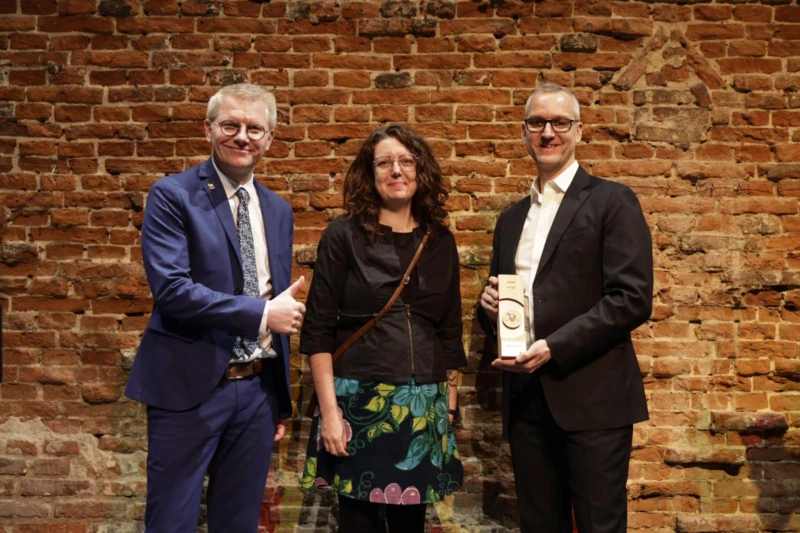Project to reduce driving at schools wins EU award
In autumn 2023, the company Nudgd and the City of Helsingborg carried out a project to reduce driving at schools. The EU has now recognised the project. The city has learnt several lessons about what works and what doesn’t.

One area where the city is actively working to reduce car use is around schools. It is about creating safer routes to school, getting children to exercise more and about the climate.
“The proportion of children who cycle and walk to school is decreasing drastically in Sweden and the world. It is a general problem that children do not move enough, that parents drive them to school by car because it feels safer. By doing so, the parents also contribute to making the route to school more unsafe,” says Emma Kangas.
She is a project manager in the Department of Environmental Education and Behavioural Influence at the Environmental Administration of the City of Helsingborg.
One of 12 cities selected
The city is working on things like speed limits and road humps outside schools, as well as better bicycle parking.
But more is needed.
In 2023, Helsingborg applied for the EU programme Rapid Applications for Transport (Raptor), which is part of the EU activity EIT Urban Mobility. The programme matches cities with challenges to companies with solutions. Helsingborg was one of 12 cities selected and was matched with the Swedish company Nudgd.
Nudgd has a website that uses nudging to get users to choose other modes of transport than cars. It is simply about pushing the user in the right direction with arguments, tips, quizzes, and an interactive map.
All schools were invited, and 25 chose to participate. The link to the website was sent to guardians and school staff. Of these, 850 people decided to be active on the site. About half of them responded to a final survey, with 39% indicating that they have either already changed their mode of transport or intend to do so.
Receives EU Mobility Action Award
The project is now the recipient of the EU Mobility Action Award. It was awarded by the European Commission at a ceremony in Brussels in mid-March.
Emma Kangas from the Environmental Administration says this about the project:
”This project shows that using digital tools to change behaviour really works. It is both cost-effective and time-efficient. Here we reached almost all schools and parents in a single project.”
A small pilot test yielded big lessons
At the same time, Emma Kangas acknowledges that just one website cannot get everyone on a bike.
“This was a small pilot test. It’s not the big difference we’re looking for, but we’ve learnt a lot about how to work with schools on these issues, what paths to take and what is difficult for them,” she says.
Furthermore, principals and school staff already have an incredible amount on their plates. And it is accepted that many stressed parents have established morning routines that are sacred.
“How the children get to school and how you get to work is an everyday routine that you don’t want anyone else to come in and comment on,” says Emma Kangas.
Watch a film about the project
Here you can watch a film about the project:
